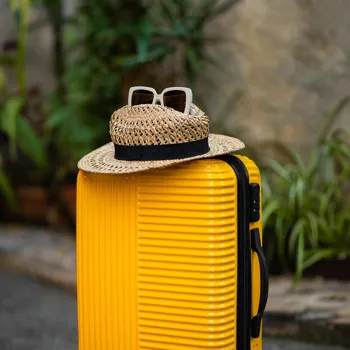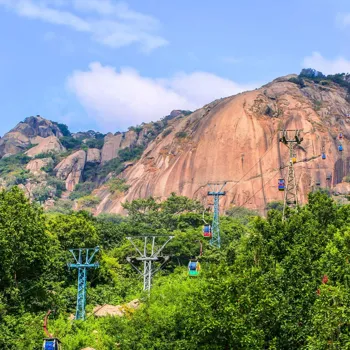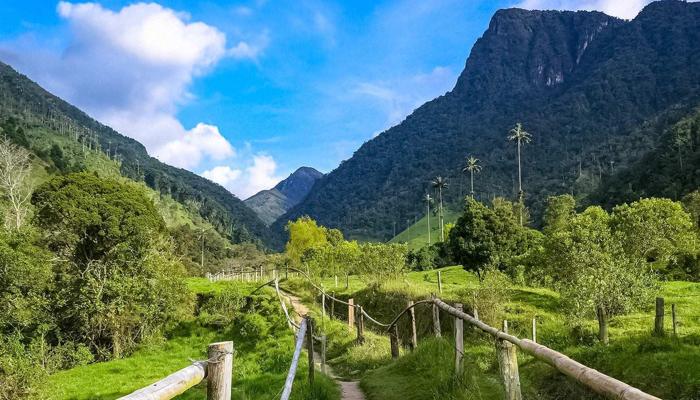Discover the key to safe travels! Learn essential tips for a worry-free adventure. Prioritize safety and enjoy every moment
Planning a trip? Exciting times ahead! Whether you're jet-setting to a foreign
land or exploring the hidden gems of India, ensuring your safety should be the top priority. No one wants a dream vacation to turn into a travel nightmare.
So, before packing your bags, let's dive deep into essential travel safety tips to keep you secure and sound on your next adventure.
Firstly, research your destination thoroughly. Understanding the local customs, laws, and potential risks is crucial.
Check travel advisories issued by the Ministry of External Affairs or reputable news sources. Familiarize yourself with emergency contact numbers, including the local police, ambulance, and fire department. Note down the address and contact details of the nearest Indian embassy or consulate.
This knowledge will be invaluable if you encounter any trouble. Share your itinerary with family or close friends, including flight details, accommodation information, and planned activities. This way, someone back home will always know your whereabouts and can raise an alarm if necessary.
Consider investing in travel insurance that covers medical emergencies, trip cancellations, lost luggage, and other unforeseen circumstances. Read the policy details carefully to understand the coverage and limitations.
Keep a copy of your insurance policy with you and share a digital copy with your family. These steps, though seemingly simple, can make a huge difference in ensuring a safer and more enjoyable travel experience. Remember, preparation is key to a worry-free journey.
Secondly, safeguard your valuables. Avoid displaying expensive jewelry or carrying large amounts of cash. Instead, opt for using credit or debit cards whenever possible. Keep your money, passport, and important documents in a concealed money belt or a secure travel wallet.
Make copies of your passport, visa, driver's license, and credit cards, and store them separately from the originals. You can also scan these documents and save them on a secure cloud storage platform or email them to yourself.
When using ATMs, be aware of your surroundings and cover the keypad while entering your PIN. Avoid using ATMs in dimly lit or isolated areas. Secure your hotel room door with a chain lock or a portable door lock for added protection.
Be cautious when opening the door to strangers, and always verify their identity before allowing them entry. During transit, keep your luggage within sight and never leave it unattended. Consider using luggage locks to prevent theft.
By taking these precautions, you can minimize the risk of theft and protect your valuable belongings while traveling. Remember, being vigilant is crucial in ensuring a safe and secure travel experience.
Thirdly, be mindful of your health.
Consult your doctor before traveling, especially if you have any pre-existing medical conditions. Get necessary vaccinations and carry a well-stocked first-aid kit with essential medications, bandages, antiseptic wipes, and pain relievers.
Pack any prescription medications you need, along with a copy of your prescription. Research the availability of medical facilities at your destination and identify nearby hospitals or clinics. Drink bottled or purified water to avoid waterborne illnesses.
Be cautious of the food you eat, especially from street vendors. Choose reputable restaurants and ensure that the food is freshly prepared and cooked thoroughly. Practice good hygiene by washing your hands frequently with soap and water or using hand sanitizer.
Get adequate rest and avoid overexertion, especially when adjusting to a new time zone or altitude. Protect yourself from the sun by wearing sunscreen, sunglasses, and a hat. By prioritizing your health and taking necessary precautions, you can stay healthy and enjoy your travels to the fullest.
Remember, a healthy traveler is a happy traveler.
Fourthly, prioritize transportation safety. When using public transport, be aware of your surroundings and keep your belongings close. Avoid traveling alone at night in unfamiliar areas.
Use ride-sharing apps or licensed taxis, and check the driver's identity before getting in. If renting a car, inspect it thoroughly for any damages before driving off. Ensure that you have valid insurance coverage and understand the local traffic laws.
Always wear a seatbelt and avoid driving under the influence of alcohol or drugs. When walking, be mindful of traffic and pedestrians, especially in crowded areas. Use designated crosswalks and follow traffic signals. Avoid distractions like using your phone while walking.
If hiking or trekking, inform someone of your plans and stick to marked trails. Carry a map, compass, and sufficient water and food. By prioritizing transportation safety, you can minimize the risk of accidents and ensure a safe journey. Remember, responsible travel is safe travel.
Fifthly, stay connected and informed. Purchase a local SIM card or use international roaming to stay connected with family and friends. Download useful travel apps that provide information about local attractions, transportation, restaurants, and emergency services.
Enable location services on your phone to help track your whereabouts in case of an emergency. Share your location with trusted contacts so they can monitor your progress. Stay updated on local news and events to avoid any potential risks or disruptions.
Be aware of any protests, demonstrations, or natural disasters that may affect your travel plans. Follow the advice of local authorities and heed any warnings or advisories. By staying connected and informed, you can adapt to changing circumstances and ensure your safety.
Remember, knowledge is power.
Sixthly, trust your instincts. If a situation feels uncomfortable or unsafe, remove yourself from it immediately. Avoid engaging with strangers who make you feel uneasy. Be wary of offers that seem too good to be true.
Trust your gut feeling and don't hesitate to say no. Learn a few basic phrases in the local language, including "help," "stop," and "I need assistance." This can be useful in communicating with locals if you encounter any problems. Be assertive and confident in your body language.
Avoid displaying signs of vulnerability or uncertainty. Remember, you have the right to feel safe and secure. By trusting your instincts and taking appropriate action, you can protect yourself from potential harm. Remember, your safety is paramount.
Short Paragraphs (3 sentences each):
Prioritize digital security when traveling for safe online experience
Prioritize your digital security while traveling. Use strong passwords for all your online accounts and avoid using public Wi-Fi networks for sensitive transactions. Consider using a VPN to encrypt your internet traffic and protect your data from hackers.
This protects your personal information and prevents potential cyber threats, ensuring a safe online experience during your trip.
Prepare for travel with self-defense skills for safety
Learn basic self-defense moves before you travel. Knowing how to protect yourself can be invaluable in a dangerous situation. Enroll in a self-defense class or watch online tutorials to learn simple techniques for escaping an attacker or defending yourself. This is about awareness and preparation.
Blend in with local customs for safety and cultural immersion
Blend in with the local culture and customs. Avoid behaviors that may attract unwanted attention or offend local sensibilities. Dress respectfully and learn a few basic phrases in the local language. This will make you less of a target for scams or harassment and enhance your cultural experience.

Be cautious sharing personal information on social media to avoid security risks
Be cautious when sharing information on social media. Avoid posting real-time updates about your location or travel plans, as this can make you a target for theft or other crimes. Wait until after your trip to share photos and stories. Protect your privacy and avoid potential security risks.
Pack light to stay safe and agile while traveling
Pack light and avoid carrying unnecessary items. A heavy bag can make you an easy target for thieves and make it harder to move quickly in an emergency. Simplify your packing and leave valuables at home, ensuring a more comfortable and secure travel experience.
Stay alert, observe surroundings, trust intuition to avoid threats
Stay alert and observant of your surroundings. Pay attention to the people around you and be aware of any suspicious activity. Trust your intuition and take precautions if anything feels amiss. This proactive approach can help you avoid potential threats and ensure your safety.















